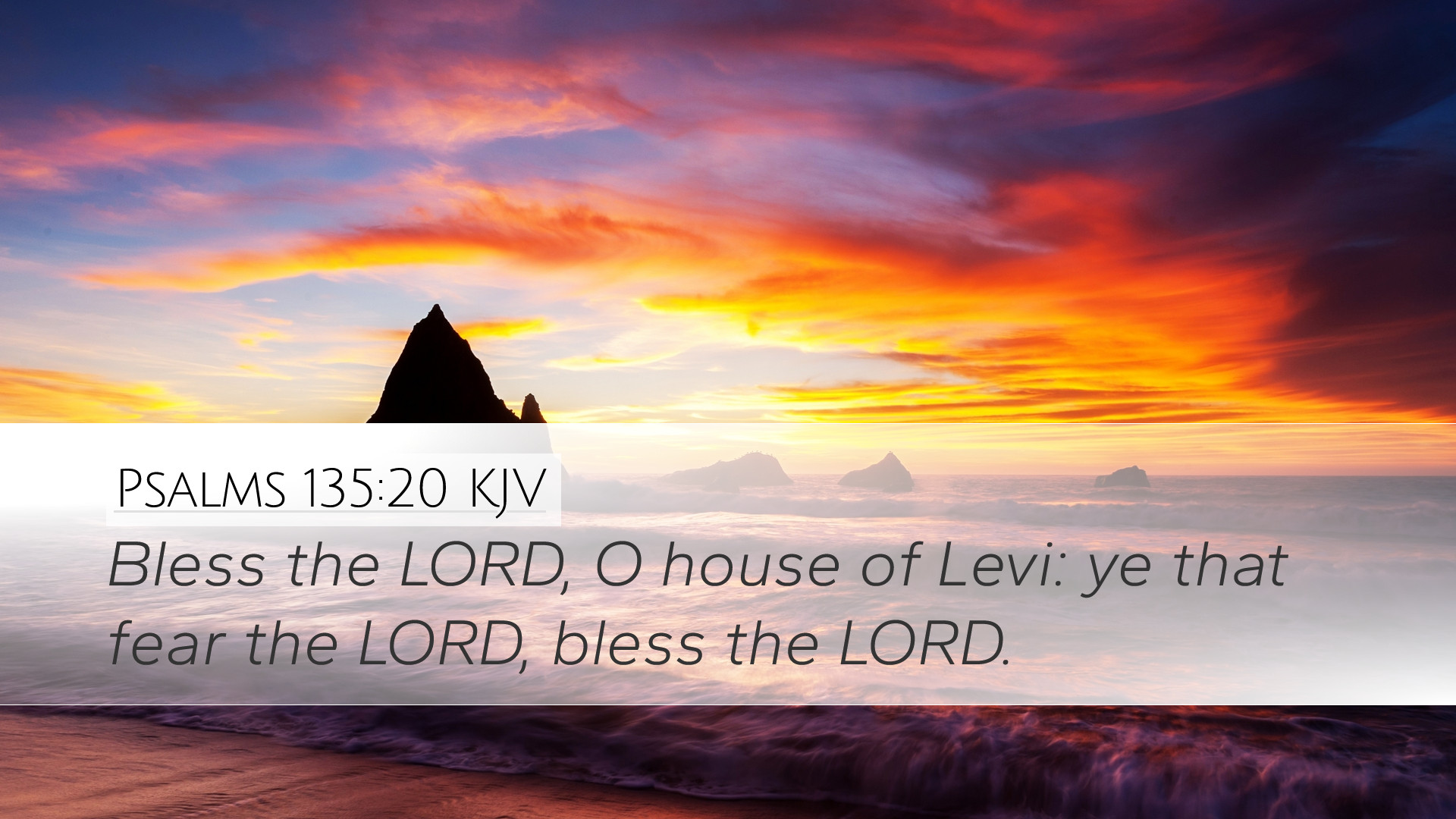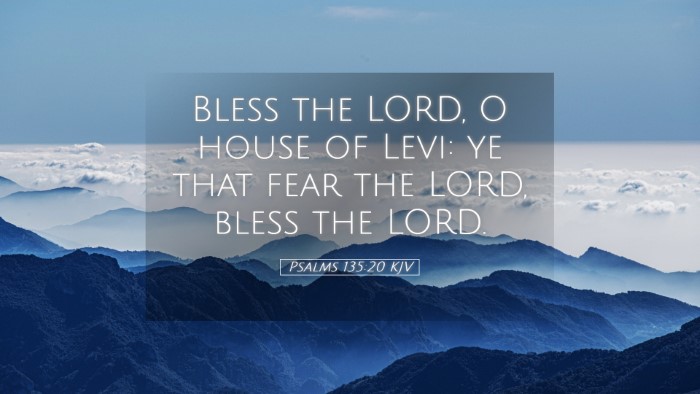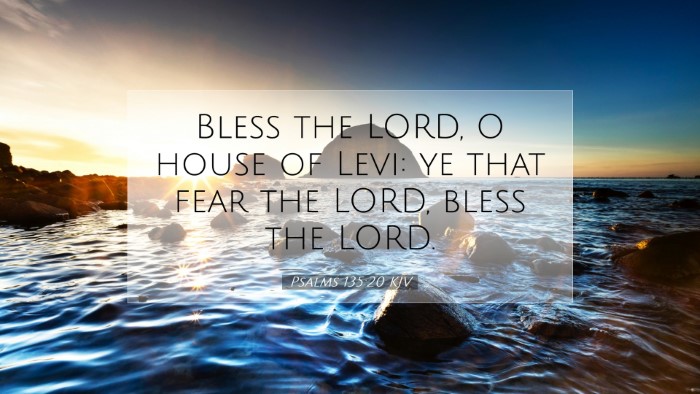Psalms 135:20 Commentary
Verse: “Blessed be the Lord out of Zion, which dwelleth at Jerusalem. Praise ye the Lord.” (Psalms 135:20)
Introduction
Psalms 135 is a vibrant and exalted psalm of praise that focuses on the supremacy of the Lord and His unique relationship with Israel. In verse 20, the psalmist invokes a blessing upon the Lord and emphasizes the sacredness of Zion and Jerusalem as the dwelling places of the Lord. This commentary draws from the insights of renowned commentators including Matthew Henry, Albert Barnes, and Adam Clarke to illuminate the depth of this verse.
Verse Breakdown
“Blessed be the Lord out of Zion…”
- Matthew Henry: Henry emphasizes that to bless the Lord means to ascribe honor, glory, and praise to His name. He notes that Zion represents the center of worship and the location where God’s presence was manifested, making it an appropriate place to honor the Lord.
- Albert Barnes: Barnes highlights that blessing the Lord “out of Zion” indicates a recognition of His sovereignty that extends from His chosen people. It symbolizes not only a geographical tribute but conveys a theological declaration of God's rule over all creation.
- Adam Clarke: Clarke reflects that blessing God from Zion denotes the unity of God’s people in worship. Zion serves as a communal hub for the acknowledgment of God, which should lead believers into a deeper relationship with Him.
“…which dwelleth at Jerusalem.”
- Matthew Henry: He points out that God's dwelling in Jerusalem signifies His chosen city. Jerusalem is not just a physical location but is laden with spiritual significance, representing God’s covenant with His people.
- Albert Barnes: Barnes expands on this by stating that Jerusalem symbolizes the fulfillment of God’s promises to His people. He views it as a city inhabited by divine authority, from which God reigns over Israel and, by extension, the world.
- Adam Clarke: Clarke reinforces this idea, underscoring that God's presence in Jerusalem underscores the importance of worship and community. The psalmist’s declaration is not just a geographical affirmation but a spiritual call to acknowledge God’s sovereignty among His people.
“Praise ye the Lord.”
- Matthew Henry: Henry notes that this call to praise is not merely a suggestion but an imperative. It reflects the natural response of those who recognize the greatness and goodness of God.
- Albert Barnes: Barnes suggests that this phrase is a summation of the psalm’s entire message: the people of God are summoned to praise Him, as their praise is a direct acknowledgment of His attributes and actions.
- Adam Clarke: Clarke perceives this as a collective call, urging not just individual praise but a communal acknowledgment of God’s majesty. Praise is seen as essential for the life of faith and the community of believers.
Theological Implications
This verse presents several theological implications:
- The Centrality of Worship: The focus on Zion and Jerusalem signifies the importance of worship in the believer's life and community. It encourages both personal and corporate worship as integral to the relationship with God.
- God’s Sovereignty: The emphasis on dwelling places highlights the understanding of God’s active presence within His chosen locations, reminding believers of His overwhelming power and authority over all things.
- Community in Faith: The call to praise reinforces the community aspect of faith. Believers are encouraged to gather and collectively worship the Lord, reflecting the unity and harmony intended within the body of Christ.
Practical Applications
From this verse, several practical applications can be considered:
- Emphasizing Corporate Worship: Pastors and church leaders should foster environments that encourage collective worship, making it a priority in church life and experiences.
- Promoting a Culture of Praise: Leaders within the church should aim to cultivate a culture where praising God becomes a natural and expected response to His goodness and grace.
- Highlighting Community Engagement: The community aspect should be emphasized in teaching and fellowship, wherein believers are continuously encouraged to join together in worship and support one another in their faith journeys.
Conclusion
Psalms 135:20 serves as a powerful reminder of the importance of worship and community in the life of faith. Drawing from insights across renowned commentaries, this verse calls believers to recognize and bless the Lord, especially as He dwells among His people in Jerusalem. It serves as an invitation to deepen communal ties, celebrate God’s sovereignty, and continually engage in heartfelt praise.


